Pandemic, Policies, and Division
The low severity of the Omicron variant despite its high transmissibility gave cause for optimism on the cusp of turning the year after the initial scare of its discovery in South Africa in November.Nevertheless, when considering the year as a whole, the more than 15,000 COVID-19 deaths in 2020 almost doubled in 2021, with Canada closing the year with over 30,000 deaths.
Vaccinations, which began to arrive in early December 2020, became more widely available as criticism of the federal government in its pace of obtaining vaccine supply and of the provinces in their progress on vaccine distribution continued. By mid-year, there was enough to administer full doses for all who wanted them.
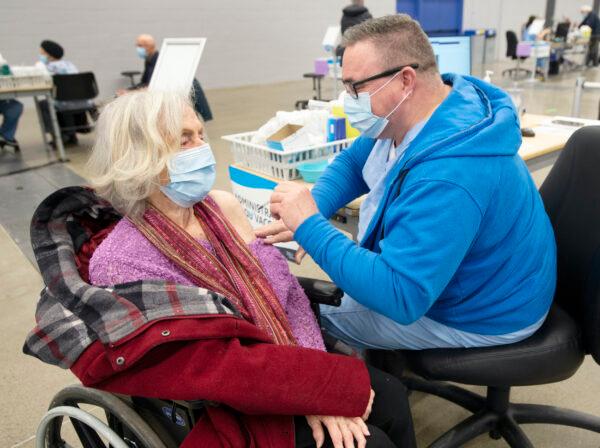
In tandem with the public health crisis, pandemic policies dominated every aspect of life.
As cases began to ease, some restrictions would be lifted, only for more to be brought back periodically as cases crept up again.
Good news emerged for Canadian snowbirds late in the year as the United States finally opened up its border to vaccinated travellers in November, months after Canada opened its border for Americans.
During the federal election, the issue of vaccine mandates and other pandemic policies became campaign issues, with some parties denouncing certain segments of the population holding different views, as polls showed growing divisions in the country.
Economy
From lockdowns to reopenings, the Canadian economy continued to heal in 2021. In some ways, such as in terms of regaining jobs lost, the economy returned to pre-pandemic norms. It saw good momentum until Omicron hit, and now, due to renewed restrictions imposed on the public, economists are dialling back their estimates for early 2022 growth. However, one Bay Street bank estimates that the economy grew 4.5 percent in 2021.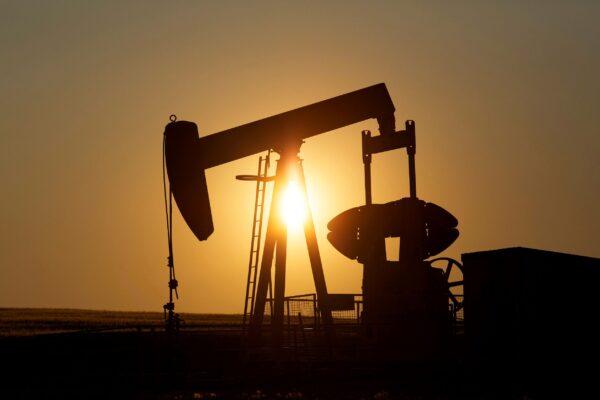
The mining/oil and gas industry has shown the strongest growth over the past 12 months, at 18.6 percent, according to the bank. A vital part of Canada’s economic growth comes from exports, and oil and gas is one of the country’s most important products. With the price of U.S. benchmark oil rising from below US$50 a barrel to over US$80 for a short period, Canadian oil producers finally had some good news.
Election, Legislation, and Provincial Relations
The biggest political event of the year, the Sept. 20 election, brought little change to the composition of the House of Commons, while giving the Liberals another minority government and new faces in some government departments.But the campaign trail and wedge issues brought more lasting trends in Canadian politics.
In the new Parliament, the Conservatives also initiated the fast tracking of the conversion therapy bill, which had been used by the Liberals to paint Tory MPs as supporters of the practice. In the previous Parliament, some Tory MPs had asked for clarifications to be added to the bill’s definitions to ensure conversations between parents and children aren’t criminalized, and Justice Minister David Lametti had said expanding the ban to adults would not be constitutional. However, the bill was expanded in scope to include adults and was passed in the new Parliament without debate or discussions in either the House or the Senate.
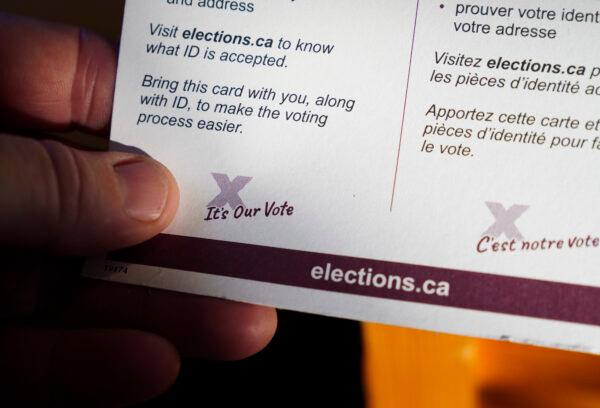
The Conservatives also backed down from their initial opposition to a requirement for MPs to present COVID-19 vaccination proof before being allowed into the House of Commons, despite concerns that the requirement infringes on members’ parliamentary privileges.
After the election, the Liberals again avoided forming a coalition, choosing instead to reach agreements with different parties on a case-by-case basis to pass legislation introduced by their minority government. The Liberals and the NDP joined forces to pass a motion to continue hybrid sittings of the House, against the wishes of the opposition Conservatives and Bloc Québécois, who wanted in-person operations.
During the short period between the election and when Parliament resumed, the Liberals tabled a number of proposed pieces of legislation. One was Bill C-3, prompted by COVID-related protests at hospitals, which adds a Criminal Code offence for anyone who acts “with the intent to provoke a state of fear” to prevent someone from obtaining health services or to impede health professionals or their assistants from doing their jobs. Another was Bill C-22, which reduces mandatory minimum sentences for many drug and weapon offences, including certain violent gun crimes.
In December, the federal government issued a formal apology to those impacted by sexual misconduct in the Canadian Armed Forces. The scandal has seen a number of top brass expelled from their roles, with some facing charges through the courts.
In the same month, Ottawa allocated $40 billion to compensate First Nations children harmed by the situation on reserves, and also to reform the child-welfare system. The broader topic of the welfare of indigenous children was front and centre throughout the year, with the discovery of unmarked graves on sites of residential schools said to belong to children, while more detailed examinations are pending.
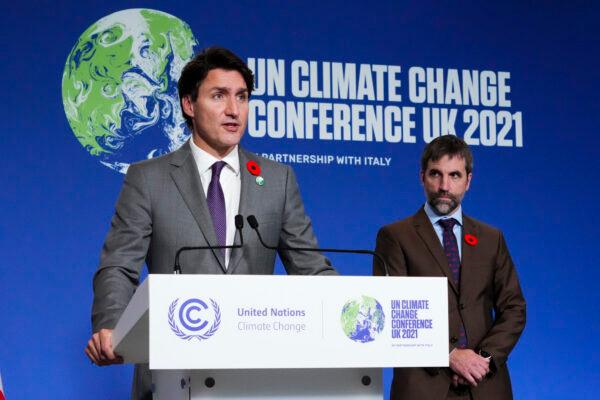
The $40 billion spending is contingent on Ottawa and child-welfare advocates reaching an agreement over compensation the Canadian Human Rights Tribunal has ordered the federal government pay First Nations children and their parents or grandparents. The tribunal ruled that the children suffered as a result of the government’s inadequate funding for child and family services in their communities, saying it resulted in families being separated.
In June, MPs passed a motion to acknowledge Quebec’s right to unilaterally change the Constitution to declare the province a nation and acknowledge French as its only official and common language. Saskatchewan Premier Scott Moe said in November that he wants a “nation within a nation” status recognition for his energy-rich province and to have more autonomy on issues such as taxation, after the federal government announced a plan to cap oil and gas emissions.
Canada-China Relations
The good news of 2021 was the release of Michael Kovrig and Michael Spavor after close to three years of imprisonment in China—Beijing’s retaliation over the arrest of Huawei executive Meng Wanzhou in Vancouver on a U.S. extradition request in late 2018.But little is known about what went on behind the scenes, why the United States relented on its request to have Meng extradited, and what the implications are for future attempts at hostage diplomacy by the Chinese Communist Party (CCP).
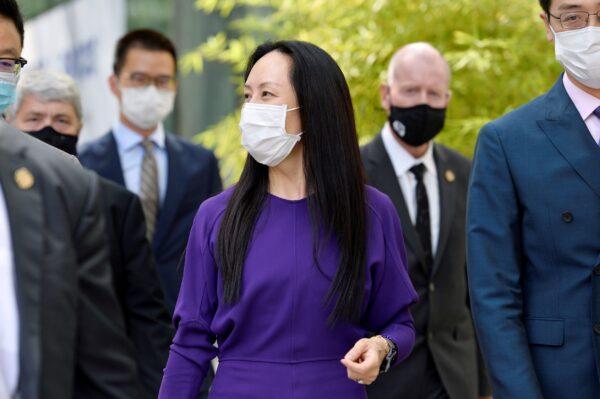
David Mulroney, a former Canadian ambassador to China who has been critical of the Trudeau government’s approach to the Chinese regime, said the prime minister’s year-end comments are a start but cover only “about 5% of the problem,” while pointing out it’s not clear what Canada’s China policy is going into the new year.
“Now let’s hope he reflects this in policies, appointments, and partnerships that advance the national interest rather than imperil it. His target for 2022?” Mulroney said in a tweet.
Conservative Sen. Leo Housakos suggested in a tweet that if Trudeau “means what he says,” he should ban Huawei from Canada’s 5G network.
Canada is currently the only country in the Five Eyes intelligence alliance that hasn’t banned or planned to phase out Beijing-linked Huawei’s infrastructure from its 5G network.
Ottawa also still maintains its $256 million commitment to China’s Asian Infrastructure Investment Bank.
The issue of Beijing’s interference in Canada was highlighted during the federal election as MPs who were vocal against the CCP’s human rights and interference records found themselves targets of misinformation attacks, resulting in losing their seats in some cases.
Canada-US Relations
Despite predictions of a less turbulent Canada-U.S. relationship due to closer ideological alignment between the Biden administration and the Trudeau government, things got off to a rocky start after President Joe Biden cancelled the Keystone XL pipeline project on his first day in office.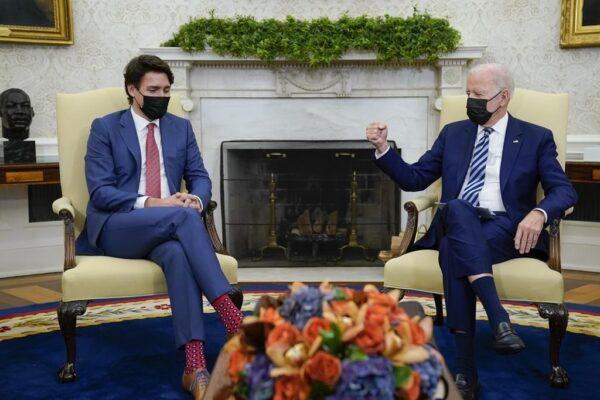
Heads turned in Canada when Biden told Australian Prime Minister Scott Morrison in a one-on-one meeting in September that the United States “has no closer or more reliable ally than Australia.” That special status had previously been reserved for Canada.
Biden’s remarks came just days after the United States, Australia, and the UK announced a new alliance, dubbed AUKUS, centred on acquiring nuclear submarines, from which Canada was left out.
More thorny issues arose toward the end of the year as the Biden administration imposed a number of protectionist measures injurious to Canada’s economy.
On the issue of Enbridge’s Line 5, which crosses into the United States and which Michigan wants shut down, some good news emerged for Canada in November when the White House said it was not considering shutting down the pipeline. Meanwhile, Enbridge’s legal challenge with Michigan continues making its way through the courts.
Inflation and Cost of Living
Ending the year 2021 and going into 2022, inflation became one of the biggest concerns for Canadians as various factors led to persistent rapidly rising prices for food, shelter, and transportation.Policy-makers were quick to call the phenomenon “transitory,” meaning that they expected it to dissipate before too long. Instead, for eight straight months, consumer prices rose faster than the Bank of Canada’s 3 percent upper limit for the inflation target range. The central bank’s primary responsibility is targeting 2 percent for inflation.
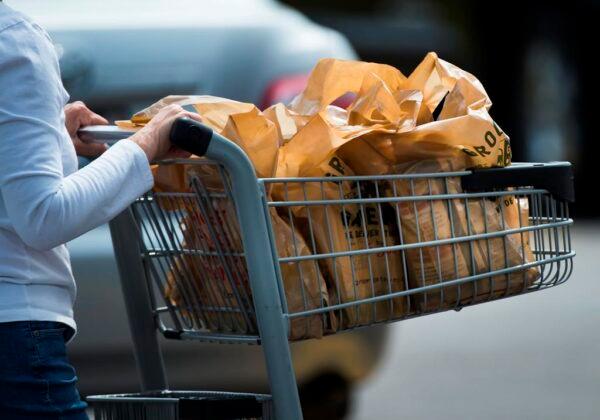
Supply chain disruptions have been singled out as the primary reason for the higher inflation. Some economic pundits also point to the extraordinary support measures extended to households and businesses amid the pandemic, as well as rock-bottom interest rates that stimulated demand—especially for goods.
The carbon tax has been less widely discussed given the bigger supply-side bottlenecks, but it’s nevertheless an incremental cost for farms and other businesses that has contributed to rising prices. At the same time, oil supply proved inadequate and oil prices rose significantly, adding to the cost of producing many goods.
Infrastructure
Devastating floods in B.C. in November led to the tragic loss of four lives, but fortunately nowhere near the hundreds of lives lost during the heat wave that hit the West in the summer. The two events caused similar levels of loss of livestock life, estimated at around 650,000 for each.
Sports
By all accounts, soccer was a success story for Canada in 2021.Canadian women have long been among the strongest in the world, and in 2021 they captured their biggest prize—an Olympic gold in Tokyo.
The Canadian men’s soccer team also held its own in its attempt to qualify for the Qatar 2022 World Cup. At a little over midway in the final qualification tournament, Canada currently sits in first place after beating mighty Mexico in Edmonton’s blistering cold of November. Qualification plays resume in late January.
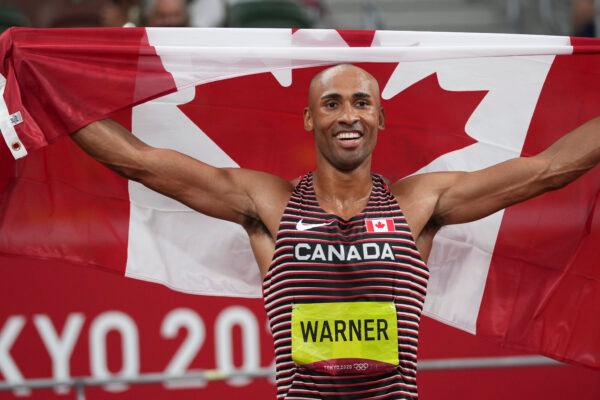
Leylah Fernandez became the latest Canadian sensation to make a splash on the world stage when she defeated three top-five players en route to the 2021 US Open final.
The Tokyo Olympics saw Canadian sprinter Andre de Grasse win gold in the 200 metres and bronze in the 100 metres. Damian Warner captured the heart of Canadians after winning gold in the decathlon and breaking an Olympic record. Swimmer Penny Oleksiak, 21, became Canada’s all-time most decorated Olympian after she won three medals at the Tokyo Olympics, bringing her total Olympic medal count to seven.
The Montreal Canadiens reached the Stanley Cup final, but what might be most remembered is how they came back to beat the heavily favoured Toronto Maple Leafs in the seventh game after losing three of the first four games.



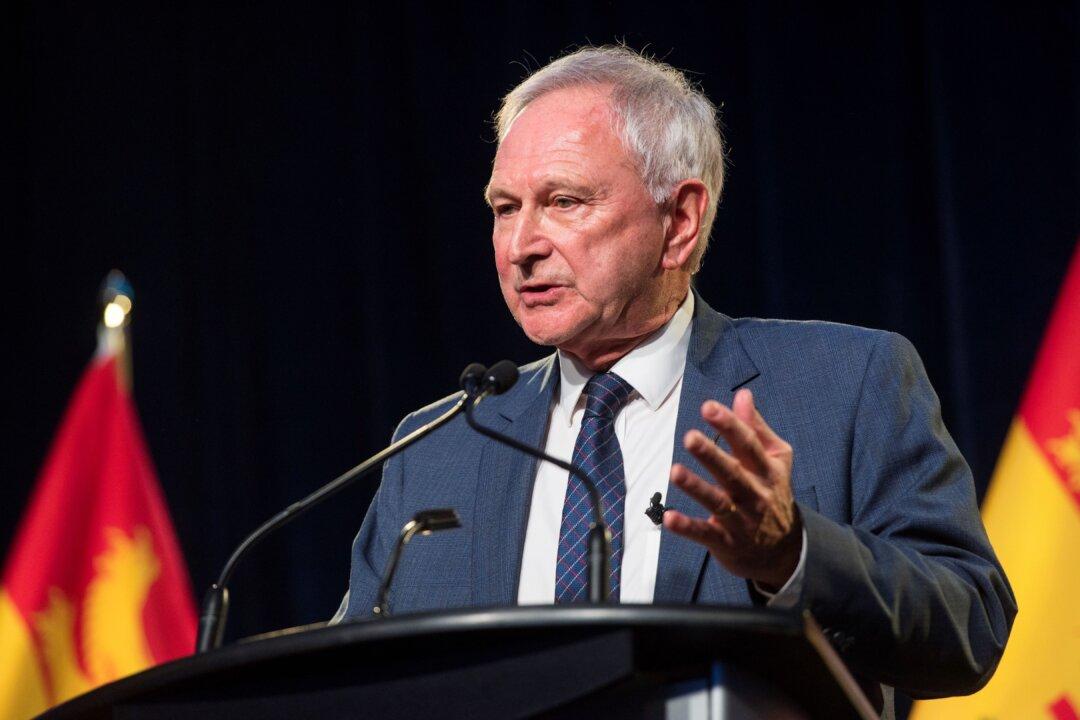
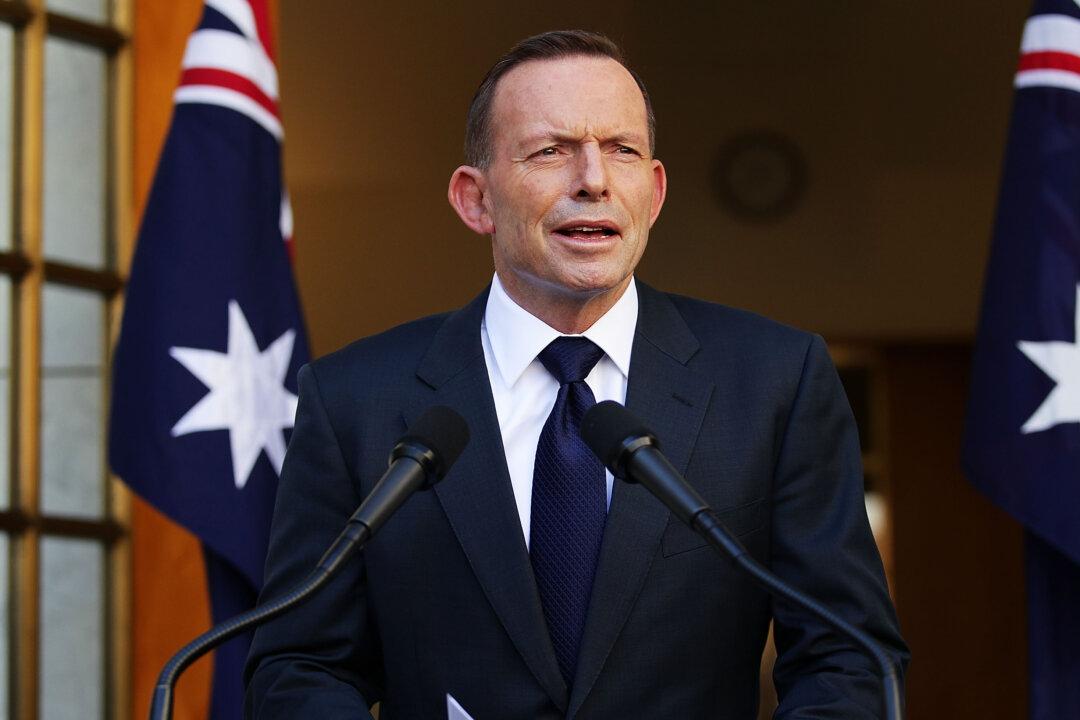

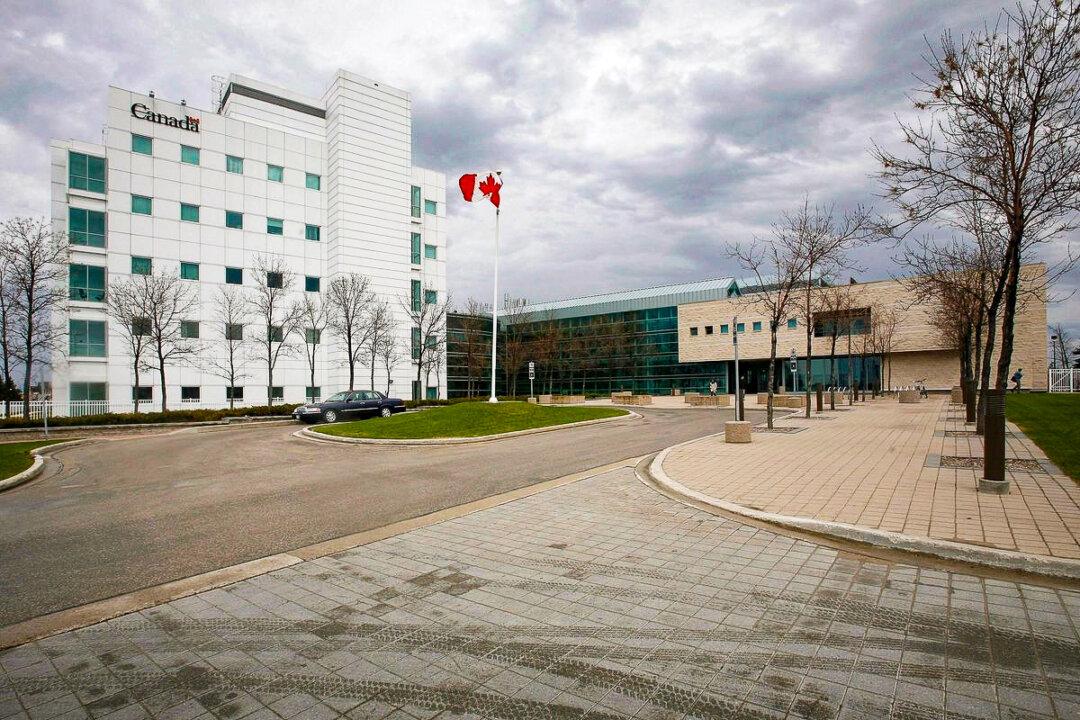
Friends Read Free